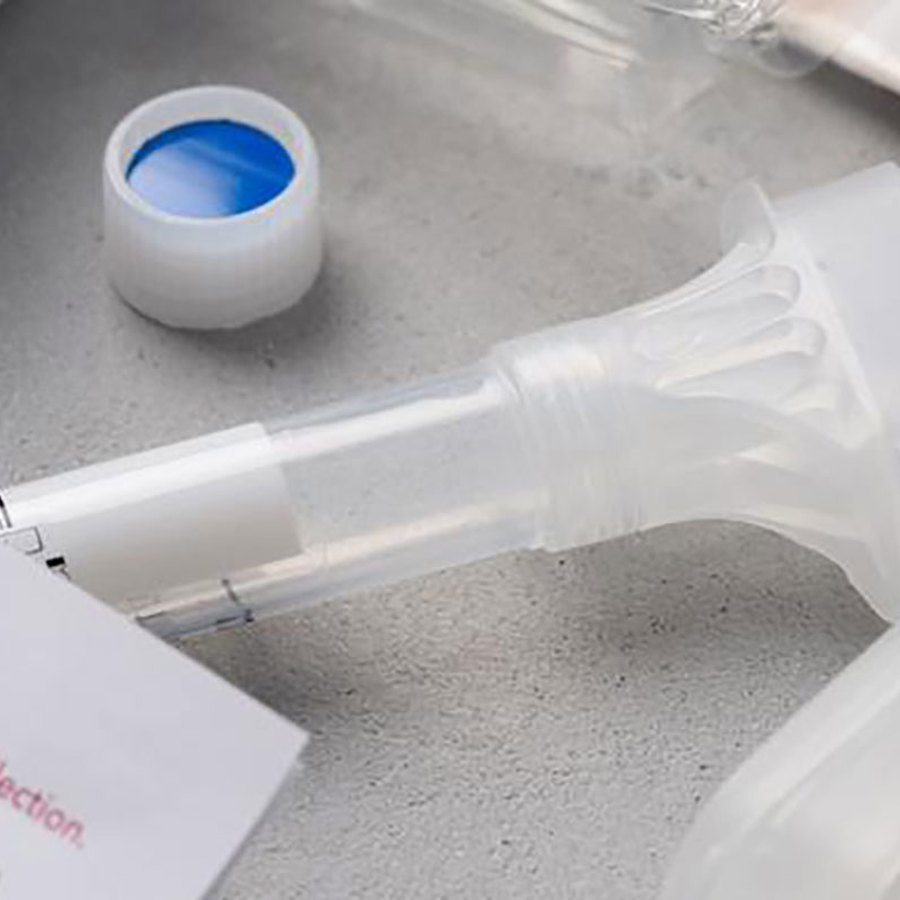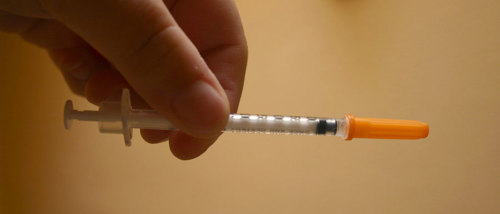
What do you think of the FDA shutting down the health part of 23andMe?
April 3, 2014

- Related Topics:
- Consumer genetic testing,
- DNA sequencing,
- Genetic testing,
- Bioethics,
- Genetics in the news
A curious adult from California asks:
That’s not an easy question to answer! In my personal opinion, 23andMe was probably overselling what it could deliver, but we need to be careful not to throw out the baby with the bathwater. Direct to consumer genetic tests like the one 23andMe offers can give us important health information that we couldn’t find any other way.
A recent example of this involves a different kind of genetic test, but the same principle applies. A woman had scientists look at all of her DNA and they found she had a mutation in the BRCA1 gene. This glitch in her DNA meant she had a much higher risk for breast and ovarian cancer. Once she found out, she was able to take some fairly drastic steps to make it less likely she would get these cancers.
Without this test she probably would not have found out about her BRCA1 mutation until it was too late. This is because doctors (and insurance companies) usually only recommend testing if there is a family history of a disease. In other words, if lots of people in her family had breast cancer, she would have been tested. But this wasn’t the case for her.


Only an unbiased test that looked at all of her DNA could have found her genetic problem. In my opinion, this is what we will lose if 23andMe is not allowed to start giving health information again.
And that isn’t all we will lose. Tests like the ones that 23andMe offers are a great way to get people learning about genetics. If it is shut down, so too is the opportunity to prepare people for the oncoming genetics revolution that I think will completely change their lives.
Still, 23andMe’s health reports weren’t perfect. While sometimes sounding slightly hysterical, the FDA did have legitimate reasons for making 23andMe pause and reset. 23andMe definitely needs to:
- Make sure that the results they are giving are as accurate as possible.
- Put less emphasis on poorly understood, complex diseases like diabetes and heart disease.
Fixing these two things would go a long way towards making 23andMe test results both better and more responsible. My hope now is that the FDA is able to get this right so that 23andMe can start giving meaningful results to people sooner rather than later.
Simple vs. Complex
One way to think about genetic diseases is to put them in two classes, simple and complex. The simple ones are like cystic fibrosis, sickle cell anemia, and Huntington’s disease. These are all caused by problems with a single gene. If you have certain versions of these genes, you will almost certainly get sick. Or you might pass it down to your kids who might get sick.
At the other end of the spectrum are diseases like diabetes and heart disease. Yes, genetics plays a role, but not in any simple way. Lots of different genes that come in lots of different versions all work together to give someone a certain risk of getting the disease. Then things in the environment, like what happens in the womb and while we are growing up, as well as our lifestyle choices, all work with these genes to cause the disease.
(Of course, there is a gray area between these two extremes. For example, Alzheimer’s Disease as well as some inherited breast cancers, like the ones caused by BRCA1 mutations, fall into this category.)
Genetic tests like the ones offered by 23andMe can be incredibly powerful for simple genetic diseases. With it, people can find mutations that can help inform key decisions in their lives that they might not have found in any other way.
For example, if a man finds out he is a carrier for cystic fibrosis (CF), he will probably want to see if the future mother of his children is a carrier too. If not, then there is little worry for their kids. If both are carriers, then each of their kids has a 25% chance of ending up with CF. Their test results give them information they can act on.
Cystic fibrosis may not be a great example for people of European descent, as they may get tested already. But a person of African or Asian descent might not get tested, since it isn’t as common in those populations. Tests like 23andMe can find the rare cases that would otherwise be missed.
Direct to consumer genetic tests are much less useful for complex diseases. In fact, since no one really fully understands how a person’s complex set of genes contributes to these diseases, no genetic test is that useful yet. Not even looking at all 6 billion letters of DNA will give you a satisfactory answer as to whether or not you will get a complex disease.
This is because there are so many genes and gene versions involved that there is a huge number of combinations that can lead to an increased risk. And not everyone with an increased risk will share the same gene versions.


It is simply not possible right now to look at someone’s DNA and predict whether or not they will get type 2 diabetes. Or really even whether they are at a higher risk. The best we can do is say that some people who had this particular difference were a bit more likely to end up with the disease.
These two sets of facts point to how 23andMe can make a better product. They need to really make sure that their results are correct for simple genetic diseases. And they need to make it very clear that the information they are giving for the complex diseases is not yet ready for prime time. Tests for complex diseases are interesting works in progress waiting to be developed into validated tests.
Fixing 23andMe Results
Test and retest. The first thing 23andMe should do is make sure that their tests are very accurate for genetic differences that are well known to cause disease. The error rate for these tests should be really low (the specific error rate is best determined by the FDA).
This probably means they need to have a separate set of tests for these diseases. The cost for a 23andMe test will go up, but it will be a much better product. Better to get a pill that has a 1 in a million chance for a side effect as opposed to a 1 in 100!
Making sure every result is absolutely correct is less important for the complex disease tests. These tests are more interesting than useful at this point. Which brings us to the second point.
Distinguish Meaningful from Interesting: The test results should probably be set up so it is much more obvious which ones are more important. Something so that a customer can realize that their cystic fibrosis result is way more meaningful than their type 2 diabetes result.
I am not sure of the best way to do this but maybe even something simple like two categories: medical and experimental, or meaningful and interesting. Or perhaps little pictures of a doctor or a scientist. (As you can see, there is a reason I didn’t go into marketing!)
Genetic Counseling
This is already a long piece, but I wanted to bring up genetic counseling. Many people suggest that tests like this should not be available unless the customer can meet with a genetic counselor beforehand. Since there are way too few counselors to actually do this, this is in some ways a back door way of ending these tests. There probably needs to be some online way for people to know whether they can handle the sorts of results they might get.
23andMe is very good at making educational videos. I can imagine them creating a set of videos that talks about what sorts of things people can learn, both good and bad, from their genetic tests. Then potential customers can make an informed decision about whether or not they want the test. This probably isn’t as good as a session with a genetic counselor but it may go a long way towards helping people understand what they are getting into when they take one of these tests.
Read More:

Author: Dr. D. Barry Starr
Barry served as The Tech Geneticist from 2002-2018. He founded Ask-a-Geneticist, answered thousands of questions submitted by people from all around the world, and oversaw and edited all articles published during his tenure. AAG is part of the Stanford at The Tech program, which brings Stanford scientists to The Tech to answer questions for this site, as well as to run science activities with visitors at The Tech Interactive in downtown San Jose.
 Skip Navigation
Skip Navigation
